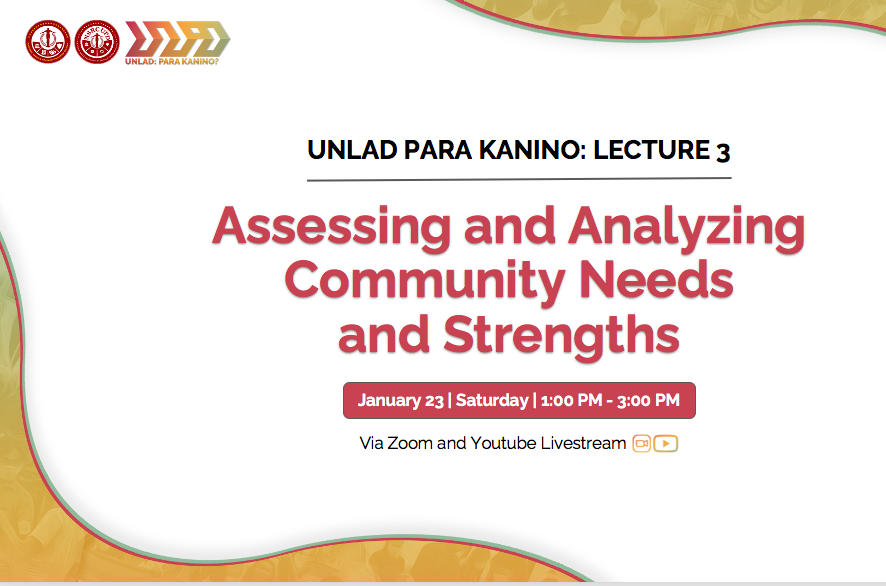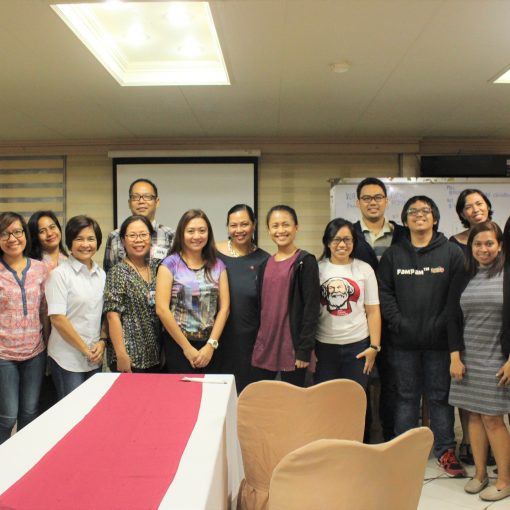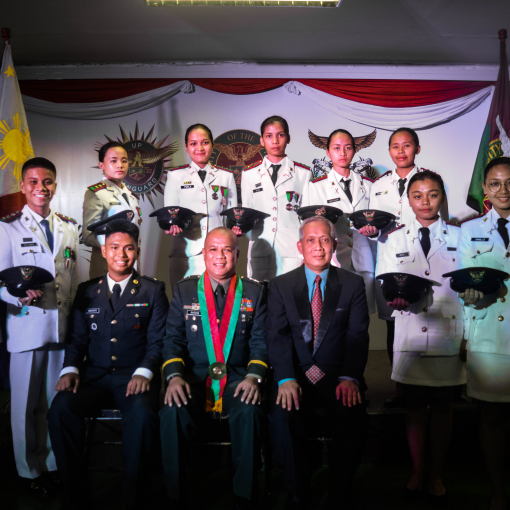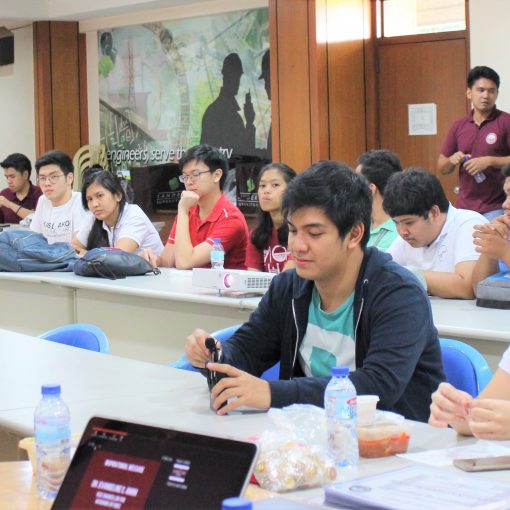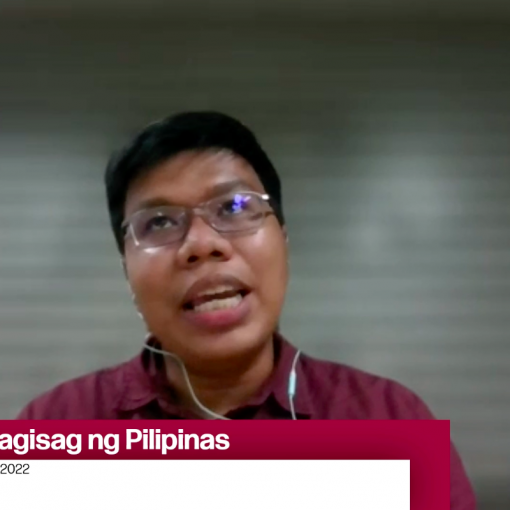The third of the five webinars for the series UNLAD: Para kanino? Talakayan ukol sa pagbubuo ng mga proyektong pang-kaunlaran ng komunidad, which was held through the Zoom platform and YouTube live reached more than ninety (90) participants. This webinar revolved around the topic of assessment and analysis of the needs and strengths of the community.
Asst. Prof. Paul Edward Muego from the College of Social Welfare and Community Development started the discussion by emphasizing that, “mahalaga pag pinag-uusapan natin [ang] assessment at analysis of community needs and strengths ay dapat nakatuon ito sa pagkamit ng mga pangkalahatan at partikular na layunin ng people-centred development.” According to him, these objectives include promoting the welfare and well-being of the people, capacity building, strengthening communities’ participation in various organization efforts, promoting learning, increasing self-efficacy and confidence in self and community efforts, and lastly, assessment and analysis of needs and strengths should encourage fellowship.
Assessing and analysing the needs and strengths of communities should not be disintegrated with the concept of community organizing, Prof Muego pointed out. Through community organizing, the organizers can collect data and information about the community which will reveal the needs and strengths of the community. He further highlighted that the organizers should only assist the people in doing such instead of imposing instructions to the community.
He then proceeded in outlining the processes involved in participatory project development and management and made the participants know where assessment and analysis of needs and strengths come into play. He mentioned that knowledge of the needs and strengths of the community will aid in identifying which projects are feasible and should be implemented.
Why do people need to play a major role in the assessment and analysis of needs and strengths? Sir Muego answered this by saying that it is to make sure that the needs and strengths came from the community itself. This will verify the identified needs and strengths because they came first hand from the people. Moreover, if the assessment and analysis are done by the community, their understanding of their lives and their situation will deepen and strengthen.
One of the frameworks mentioned by Sir Muego is that of Friedmann’s. He mentioned that in assessment and analysis, poverty should be seen as a lack of access to the eight bases of social power which includes social networks, appropriate information, surplus time, the instrument of work and livelihood, social organization, knowledge and skills, defensible life space, and financial resources. The second framework that the speaker mentioned was the Asset Pentagon. With the use of this framework, project developers can identify the resources already available in the community. Further, ensuring that all sectors in the community are being considered is also vital. Women, the elderly, children, and persons with disabilities should have equal access to the decision-making and assessment and analysis for the project development and management.
Some of the instruments mentioned by Sir Muego which could be used in community assessment are the Resource Map, the Transect Map, the Seasonality Calendar, and the 24-hour clock. These examples were affirmed in the form of stories from the communities such as SABA (Samahan ng mga Ayta sa Banawen), SMMAK (Samahan ng Maykapansanan at Magulang na Aktibo sa Komunidad), and LPPWDFI (Las Pinas Persons With Disability Federation Inc).
He concluded by reminding everyone that projects should not be hastily implemented. Moreover, it should not be imposed on the community. Rather, the community should be part of the decision making and project development and management. As Sir Muego said, “ang gawaing nasimulan nang tama ay kalahati nang nagawa”
The second speaker of the webinar is Ma’am Neen Sapalo, a lecturer at the Department of Filipino and Philippine Literature and the project manager for the Countermapping Ph’s New Clark City research project. She began by explaining the history of research which started as a way for colonizers to gather information about the people in their colony and those that they want to colonize. Research findings were also used to justify colonization. One of the manifestations of this justification was when an Igorot village and a Moro Village were used as an exhibit in the St. Louis World Fair. They were depicted as barbaric. Hence, the colonizers were able to ‘justify’ that they are needed by the people to be ‘saved’.
She then shifted to the research process of today wherein researchers still have the tendency, whether intentional or not, to make research exploitative. This tendency is due to the biases that the organizers have which include biases on the perception of development, the concept of home, and the notion that the community members are always in agreement. Despite these biases, it must be ensured that the narratives of the people in the community prevail. To do this, it must be clear for the researchers that research is political and should be democratic.
The main principle of democratic research lies within the concept that anyone can be part of the research, whether a member of the academic community or not. With this, researchers should treat the community members as research partners instead of just research participants. In this perspective, the community members shall now participate in the decision-making process of the research. Ms. Sapalo further elaborated that research is political. The choice of research topic, framework and methodology, and the identification of agenda and research collaborators and partners are all political in nature which makes research political.
Awareness of such is not enough to implement a project. This awareness should always be followed by concrete steps aligned with the set goals. Ma’am Sapalo mentioned several methods to achieve such. This includes counter-mapping, mental or cognitive maps, walking interviews, and auto-photography. Counter mapping is a philosophy, approach, and method that uses maps for progressive objectives. It contradicts the state narratives and development projects that exploit and violate human rights of the society’s vulnerable sectors. The importance of counter-mapping, as Ma’am Sapalo mentioned, is it “recognizes and acknowledges that maps can be instrument of control and oppression but maps can actually be tools of empowerment pero nakadepende po ito kung sino at ano ang interes ng nagmamapa at kung anong proseso ng paggawa ng mapa.” Counter mapping emphasizes the narratives, voices, and perspectives of the vulnerable sectors in the society. Moreover, the notion that maps are neutral and value-free makes people vulnerable to fall into traps that maps are objective and that the boundaries and borders that came with it are given and are natural phenomena. This enables maps to become exploitative.
The second method she mentioned was mental or cognitive maps. These are representations of the space an individual belongs to which was made also by the same individual. It recognizes the differences of notion and perspective of people within the community. The third method is called the walking interviews. As Ma’am Sapalo mentioned, maps are not complete without the narratives that come with them. The interviews are used to gather or verify information that will be beneficial in creating projects suitable to address the needs of the community. The last method mentioned is the auto-photography. This shows the narratives of the people in the community by the use of videos or photos. The speaker ended her talk by hoping that we indulge ourselves in research to the point of reaching insanity, intending a pun on the statement of a notable figure which she also shows in her presentation.
by Abegail Panghulan

